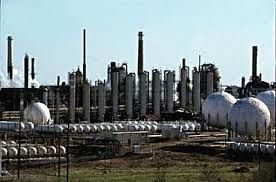
Large integrated oil companies have reduced their US refining capacity by nearly 10% in the past 30 months, and could reach as low as 20.245 million b/d by the end of the year,
from 23.653 million b/d at year-end 2010, as they follow a path of "dis-integration," according to a Raymond James investor note issued on Monday.
"While the companies themselves largely retain their familiar logos--a legacy of their consumer branding strategy--there is an interesting dynamic at work that has become increasingly visible in the past few years: the integrated model is slowly eroding," analysts Pavel Molchanov and Alex Morris said.
"Put simply, almost all of the majors are deliberately shrinking the downstream presence, with some exiting downstream altogether," the analysts said.
They added that the large integrated companies are becoming more like E&P "pure plays," though larger more oil-weighted and more internationally oriented than their traditional US E&P peers.
"As any energy investor knows, the bulk of the value in the energy value chain is in the upstream, i.e., it's almost always better to be the resource owner than the processor," Raymond James said.
The analysts focused on a "peer group" of 10 companies: ExxonMobil, Shell, Chevron, BP, Total, ConocoPhillips, Marathon, Hess, Murphy Oil and Petrobras.
"Aggregate refining capacity of these 10 companies at year-end 2008 was 23.945 [million b/d]," Raymond James said.
Raymond James said it has identified 15 refineries, with a capacity of 2.296 million b/d, that have been sold since year-end 2008, with another seven officially for sale.
"If it looks like the majors just don't like refining all that much, that's because it's true," Molchanov and Morris said.
The large integrated oil companies "are putting downstream operations on what amounts to a 'starvation diet' with spending close to the lowest levels possible," they said.
They cited Chevron, which "has allocated $2.9 billion to downstream out of a total capital budget of $26 billion," and Marathon, which has been the most "refining-centric of the majors" before its spinoff this year. The analysts said "the 2011 budget included $1.2 billion for downstream, or 24% of the $5.3 billion total, whereas the segment comprised just over half of the companywide assets at year-end 2010."
"Most majors are understandably frustrated to be trading at [pricing/earnings] multiples far below their historical averages...while there are multiple factors behind that, one possible solution is to reduce refining exposure," Molchanov and Morris said.
"Not that this is any huge revelation--the market prefers companies that produce the resource vs. the ones who process it...Thus, at least in theory, a company with lower refining exposure should be rewarded with a higher multiple, everything else being equal," the analysts said.
Large integrated companies also sense that oil consumption in the west has peaked--"permanently and irreversibly," Raymond James said.
"Insofar as downstream investments are still being made, they are increasingly focused on emerging markets, such as refinery build-out in Brazil and BP's fuel marketing joint venture in China," the note said.
Large integrated firms are moving in the opposite direction from the industry, which has been "creeping up," the analysts said. They estimate global refining capacity at 89.3 million b/d by year's end, up from 88.1 million b/d in 2010 and 85.9 million b/d in 2008.
The Raymond James analysts said that they view the "dis-integration efforts" in a "broadly favorable light."
"In addition to higher multiples that E&P pure-plays traditionally enjoy, the majors should benefit from reduced exposure to structurally declining petroleum markets in North America and Europe," Molchanov and Morris said.
Source: Platts
We use cookies to improve your experience. By continuing to use our site, you accept our Cookies, Privacy Policy,Terms and Conditions. Close X